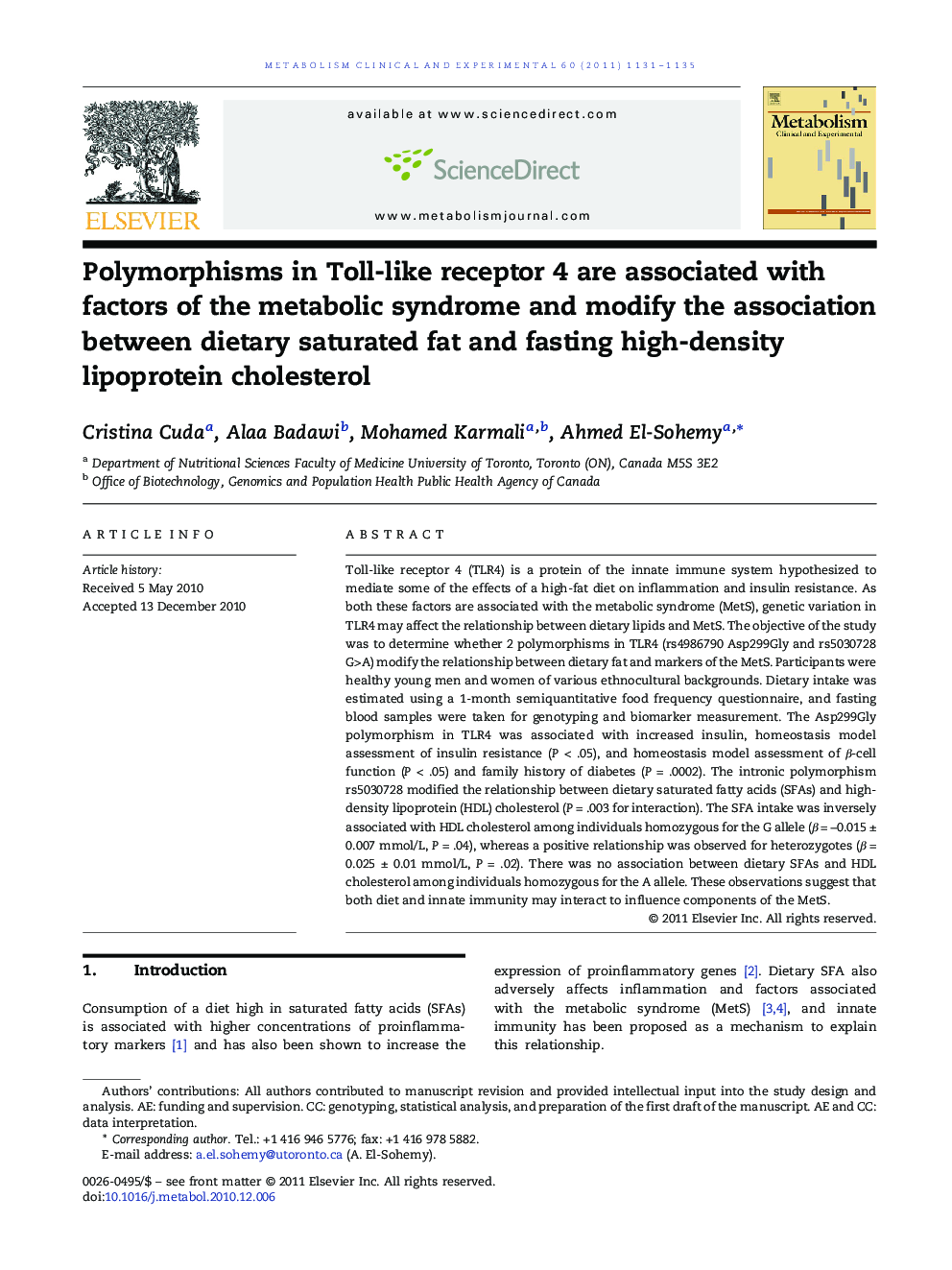| کد مقاله | کد نشریه | سال انتشار | مقاله انگلیسی | نسخه تمام متن |
|---|---|---|---|---|
| 5903885 | 1157115 | 2011 | 5 صفحه PDF | دانلود رایگان |

Toll-like receptor 4 (TLR4) is a protein of the innate immune system hypothesized to mediate some of the effects of a high-fat diet on inflammation and insulin resistance. As both these factors are associated with the metabolic syndrome (MetS), genetic variation in TLR4 may affect the relationship between dietary lipids and MetS. The objective of the study was to determine whether 2 polymorphisms in TLR4 (rs4986790 Asp299Gly and rs5030728 G>A) modify the relationship between dietary fat and markers of the MetS. Participants were healthy young men and women of various ethnocultural backgrounds. Dietary intake was estimated using a 1-month semiquantitative food frequency questionnaire, and fasting blood samples were taken for genotyping and biomarker measurement. The Asp299Gly polymorphism in TLR4 was associated with increased insulin, homeostasis model assessment of insulin resistance (P < .05), and homeostasis model assessment of β-cell function (P < .05) and family history of diabetes (P = .0002). The intronic polymorphism rs5030728 modified the relationship between dietary saturated fatty acids (SFAs) and high-density lipoprotein (HDL) cholesterol (P = .003 for interaction). The SFA intake was inversely associated with HDL cholesterol among individuals homozygous for the G allele (β = â0.015 ± 0.007 mmol/L, P = .04), whereas a positive relationship was observed for heterozygotes (β = 0.025 ± 0.01 mmol/L, P = .02). There was no association between dietary SFAs and HDL cholesterol among individuals homozygous for the A allele. These observations suggest that both diet and innate immunity may interact to influence components of the MetS.
Journal: Metabolism - Volume 60, Issue 8, August 2011, Pages 1131-1135